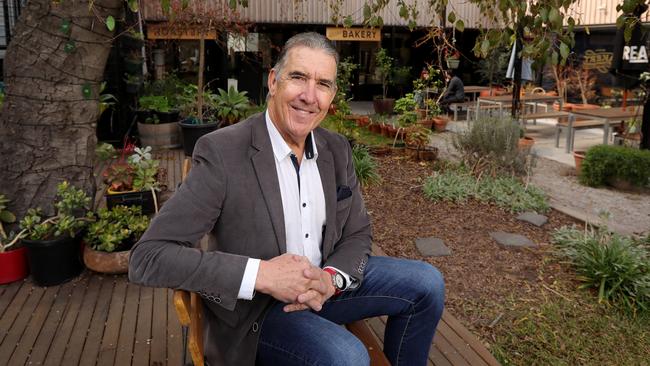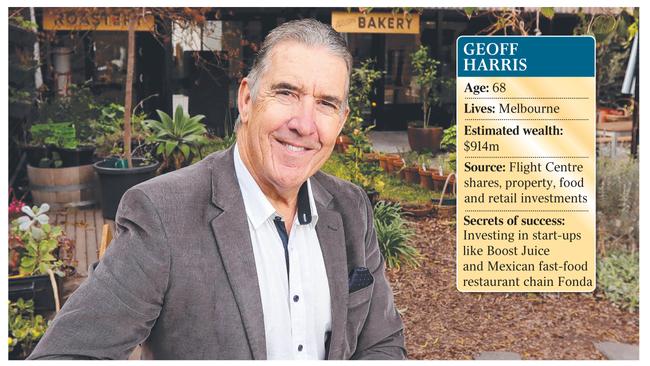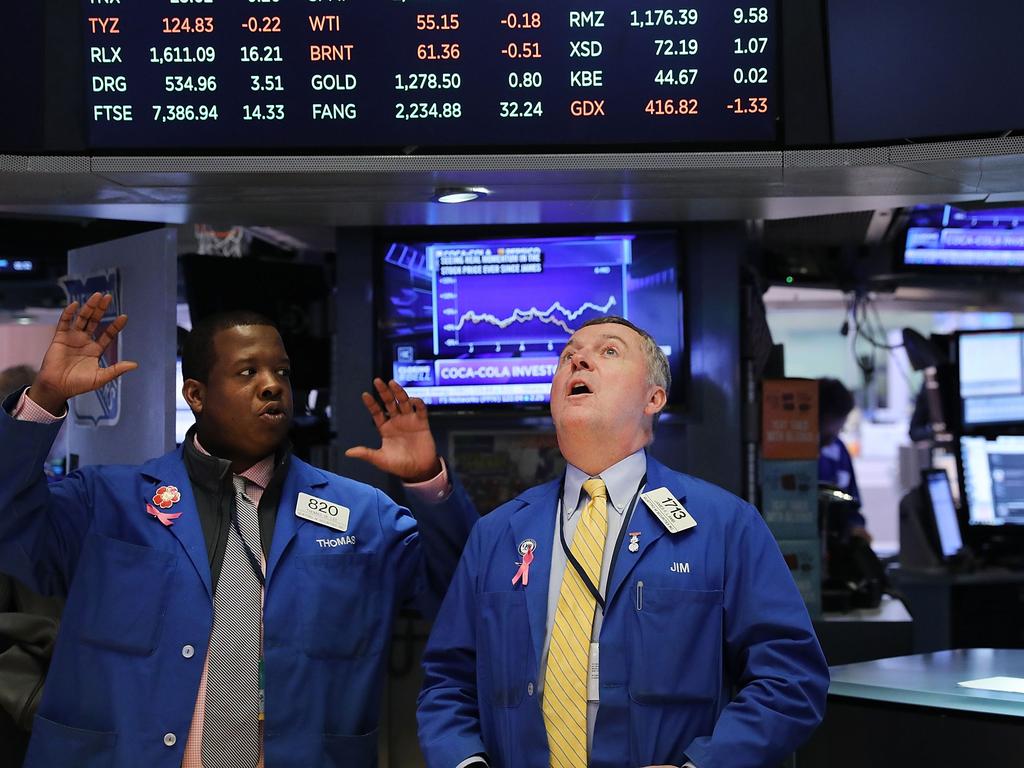Coronavirus: Services industry ‘needs open borders’, says Flight Centre co-founder Geoff Harris
There’s massive damage to the services industry from continued pandemic lockdown, says Flight Centre co-founder.

Flight Centre co-founder Geoff Harris says he has major fears about the damage to the economy, and the services industry in particular, as a result of the continued government lockdown across Australia.
While the bulk of Harris and his family’s fortune is found in Flight Centre shares, Harris has long had other investments and connections to the retail and services sectors.
He was an early investor in Boost Juice before a successful and profitable exit, has a stake in Mexican restaurant chain Fonda, office start-up CreativeCubes and online auction app Gavl.
Harris says the fight against the coronavirus has been well handled in health terms by the national cabinet, but he admits to wider concerns as the year goes on.
“We are in danger of a tipping point in that the human and financial costs of the cure could outweigh the health costs of the virus,” Harris tells The Australian.

“What I fear in the second half of this year is the mental health, suicides, and just the sheer anxiety and loss of hope for so many working people, mainly younger people, who have lost their jobs and will stay on the long-term unemployed list. [There is also] the many small and medium business owners who have lost or will lose everything – in mainly the service, tourism and hospitality industries due to the lockdowns.”
Harris still holds a large stake in Flight Centre – which has had its share price fall by two-thirds since February as the pandemic hit all tourism and travel. But he remains a big supporter of chief executive Graham Turner, who started the company with Harris and Bill James after the trio offered cheap bus trips across Europe in the 1970s.
As well as his hospitality interests, Harris also backs the social enterprise group STREAT. It operates from property he owns in inner-city Melbourne.
More broadly, Harris is a proponent of structural reforms such as tax changes, new plans for water and energy policy and support for a local manufacturing industry to kickstart the economy post-COVID-19.
He believes that state borders need to reopen either late this month or by July so “the tourism, aviation and hospitality industries that employ so many hundreds of thousands of Australians can reopen. It is vital and makes sense medically with such a low community transmission of the virus right across Australia”.
Harris is also supportive of close co-operation between the federal government and the union movement regarding industrial relations, believing simplified awards would eventually lead to greater productivity and wages growth that is fair to all parties.
He also is an advocate for an increase in the GST to 15 per cent, along with a reduction in personal and income taxes, which would allow state governments to repair their balance sheets.
“A fair commensurate increase must be implemented for pensions and fixed income welfare recipients so as to mitigate the increased GST cost as part of the model,” says Harris.
Manufacturing tax incentives
Harris also backs calls for more assistance for local manufacturing, including tax incentives to invest in plant and equipment and create more jobs, and says a national water plan is also needed to help boost growth in agricultural areas of the country and grow food exports to Asia and other key markets.
His other ideas include streamlining state and federal government regulations – “we are woefully over-governed” – and also calls for a boost and technology sectors, which could include research and development and tax policies designed to help industries such as 3D printing, artificial intelligence and robotics, digital design and green energy capture and storage.
Harris also says Australia should consider introducing nuclear energy to support or replace coal and gas power until green energy has a critical mass.
“Modern nuclear technology is safe and emissions free and we can create thousands of new jobs in the supplying, processing of uranium, and building reactors, and the storage of nuclear waste globally in our deserts, which I believe is environmentally the safest option for nuclear waste storage in the world.
“So why not create this new lucrative multi billion-dollar revenue and new employment source now while supporting the global environment in nuclear waste management.”








To join the conversation, please log in. Don't have an account? Register
Join the conversation, you are commenting as Logout